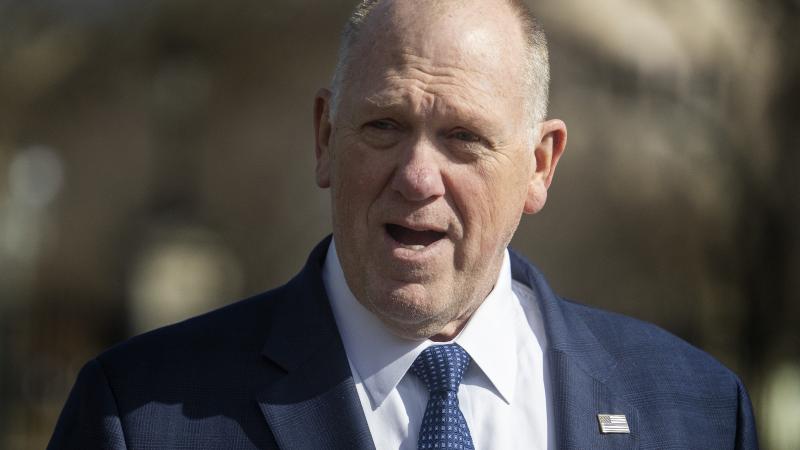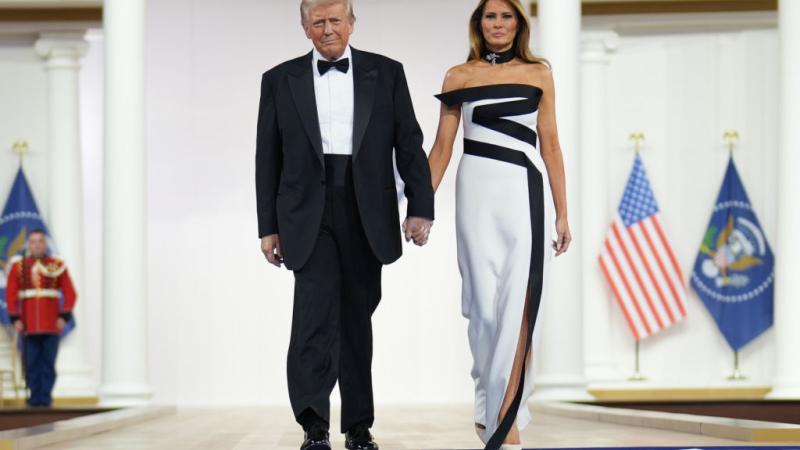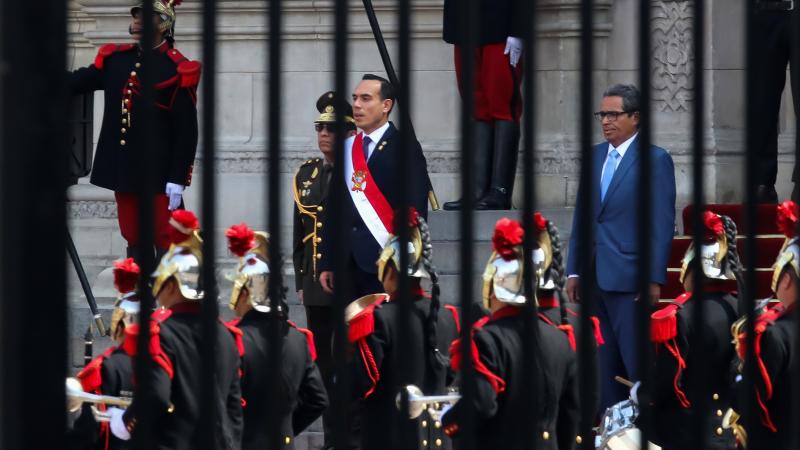Judge approves class-action suit against Chicago Public Schools for Hindu rituals forced on students
CPS and famed film director David Lynch's foundation already paid one student $150K for "Quiet Time" transcendental meditation program.
Chicago Public Schools allegedly subjected students to secret religious rituals by a Hollywood director's charitable foundation with the help of the University of Chicago.
CPS and the David Lynch Foundation for Consciousness-Based Education and World Peace paid a Christian student $150,000 last fall to resolve litigation, and now could be on the hook for much more.
U.S. District Judge Matthew Kennelly granted class certification for Establishment Clause claims in a First Amendment lawsuit that covers every student in the "Quiet Time" program, which ran for four years at eight CPS schools, who turned 18 on or after Jan. 13, 2021. He said it's likely to number in the thousands of students.
CPS declined to comment on "matters pertaining to ongoing litigation," but told Just the News in an email "we continuously review our programs to ensure they are operating as intended and implement changes as needed to ensure students can continue to learn, grow, and thrive."
The foundation, set up in 2005 by "Twin Peaks" co-creator Lynch to teach "transcendental meditation," and UChicago didn't answer queries.
The suit calls Quiet Time a "Hinduistic religious program" led by certified TM instructors contracted by the foundation and CPS teachers when they weren't available. It required students to recite Sanskrit mantras, which they were allegedly told were "meaningless sounds" but actually "honor or reference specific Hindu deities."
Away from teachers, the instructors led students in a "Puja" initiation ceremony – defined as "a Hindu act of worship or propitiation" and "offering" to a god – by kneeling before and presenting items to an image of TM forefather Guru Dev, but didn't explain the meaning, the suit alleged.
It says the English translation of the Sanskrit makes clear they were chanting "statements recognizing the power possessed by various Hindu deities and invitations to those same Hindu deities to channel their powers through those" at the Puja.
CPS, the foundation and UChicago's Urban Labs, which accepted the foundation's research proposal and pitched it to CPS as Quiet Time, made direct and indirect representations to students, parents and staff that transcendental meditation was "non-religious," the suit says.
They knew or should have known the 3rd U.S. Circuit Court of Appeals, which is not controlling in Illinois, struck down a New Jersey high school elective taught by TM instructors as an Establishment Clause violation more than 40 years ago, according to the suit. (Kennelly previously dropped UChicago as a defendant.)
Other school districts have allegedly instructed students to pray to gods in the name of diversity, equity and inclusion. California agreed to dump Aztec prayers allegedly associated with human sacrifices, which students claimed they felt compelled to pray, from its ethnic studies "model" curriculum widely used by schools to settle litigation in 2022.
Illinois lead plaintiff Kaya Hudgins "was a Muslim" when she transferred to participating Bogan Computer Technical High School, according to the suit. The Christian student who received a settlement last fall, Mariyah Green, served as a witness in Hudgins' suit. Both are black and were 16 when they first encountered Quiet Time.
Green's declaration says she transferred to Bogan for its basketball program and participated in Quiet Time because teachers said refusal could hurt her grades, which could get her kicked off the team. She feigned a knee injury to avoid kneeling before the image of Guru Dev.
Hudgins' declaration says a teacher told "my entire class to sign a consent form to participate in Quiet Time" and everyone signed it "because we felt pressure."
The teacher allegedly gave the same academic warning but also told students they'd be "sent to the dean" if they refused, the latter of which happened to Hudgins after she complained "a few times," she said.
Hudgins and "many of my classmates" signed a nondisclosure agreement to keep the instruction private, and were "particularly warned" by a foundation staffer "not to tell our parents if our parents were 'religious,'" she said.
She endured a "one-on-one" Puja ceremony "in a darkened room" with an adult woman who "whispered a 'mantra' into her ear" and told her to keep the phrase private.
The meditation instructor "encouraged" Hudgins to participate and promoted the practice by pulling her out of class "and giving her and her classmates pizza if they promoted TM," the suit says. One student was allegedly offered $100.
Kneeling before Guru Dev "made me feel guilty and sinful because Muslims are not to worship men," Hudgins' declaration says. The school allegedly refused to give her class breaks for the five daily prayers expected of Muslims.
The Hindu practices made Hudgins "question her Islamic beliefs," the suit says. A spokesperson for Hudgins' lawyers at Mauck & Baker said she is "no longer practicing any religion."
While Quiet Time has been a magnet for litigation, Hudgins' case is apparently the first to reach class certification, and its scope has alarmed CPS and the foundation.
The class includes both the "treatment" and "control" groups, meaning even students in the Quiet Time classrooms who were not instructed in transcendental meditation – yet took the same "health questionnaire" for the UChicago research project, divulging sensitive information about their bodies – can join the certified class.
By alleging the district "endorse[d]" transcendental meditation and "effectively coerced students into participation," the suit does not require any student to have "themselves 'practiced' the alleged religion or religious activity," Judge Kennelly, appointed by President Clinton, wrote in his memorandum opinion and order last week.
"The concern is that religious displays in the classroom tend to promote religious beliefs, and students might feel pressure to adopt them," the judge wrote, quoting the controlling 7th Circuit in a 2012 decision against a school district that held graduation ceremonies in a Christian church.
Kennelly also swatted down statute-of-limitations objections about the four-year scope of the class, which Hudgins estimated would include 2,000 to 3,000 students who meet the age threshold. He noted that UChicago told the district in 2017 that it estimated 2,800 students split between the groups would participate that academic year.
Under Illinois law, "a person who was a minor at the time the cause of action accrued can bring a claim within two years" of turning 18, which is "of particular import here," the judge wrote.
He scolded the defendants for "great lengths in their attempt to undermine Hudgins's credibility and her adequacy to represent the class" – for example, trying to disqualify her because she didn't know the word "Puja" until she sued. "There is no requirement that one's vocabulary remain unchanged throughout the course of litigation," he said.
Kennelly declined to certify a class for Hudgins' free exercise claim, even limited to the treatment group of students, because it would "require individual inquiry into the students' religious beliefs, if any, and whether Transcendental Meditation burdened those beliefs."
The Facts Inside Our Reporter's Notebook
Videos
Links
- paid a Christian student $150,000 last fall
- Judge Matthew Kennelly granted class certification
- The suit calls Quiet Time
- "a Hindu act of worship or propitiation"
- "offering" to a god
- struck down a New Jersey high school elective
- California agreed to dump Aztec prayers
- Christian student who received a settlement
- 7th Circuit in a 2012 decision
















